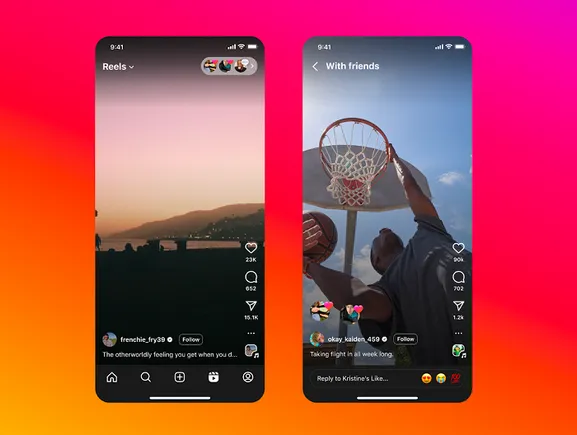United Nations Secretary-General Antonio Guterres is calling for something that’s downright Un-American, and we are completely here for it: How about a worldwide ban on fossil fuel advertising, please?
And if governments won’t or can’t do it, he said — it would obviously be a big screamin’ violation of the First Amendment in the US — then advertising and PR companies should voluntarily end their contracts with fossil fuel companies, because, as Guterres argues,
“Fossil fuels are not only poisoning our planet — they’re toxic for your brand. Your sector is full of creative minds who are already mobilising around this cause. They are gravitating towards companies that are fighting for our planet — not trashing it. […] I urge every country to ban advertising from fossil fuel companies.”
Guterres called for the ban in a speech at the American Museum of Natural History in New York City, speaking in its Hall of Ocean Life, home to a life-sized model of a 94-foot-long blue whale that hangs from the hall’s ceiling.
Can’t really disagree with any of what Guterres said, really:
“Many in the fossil fuel industry have shamelessly greenwashed, even as they have sought to delay climate action — with lobbying, legal threats, and massive ad campaigns. […] They have been aided and abetted by advertising and PR companies — Mad Men fuelling the madness.
“I call on these companies to stop acting as enablers to planetary destruction. Stop taking on new fossil fuel clients, from today, and set out plans to drop your existing ones.”
Obviously, there’s a hell of a lot of money to be made in helping to delay action on climate, so left to their own, advertising companies have every incentive to pursue greenwashing campaigns, raking in money from polluters trying to convince us that they’re working on wonderful clean energy tech while in reality they’re only interested in selling more oil and gas. Remember algae-based fuel? Never happened, and Exxon never actually gave the research enough funding to amount to anything. Sure made for hopeful ads, though.
Guterres’s comments gave a significant endorsement to activists who have been pushing for a ban on fossil fuel ads, something along the line of bans on cigarette ads in the US and elsewhere. Of course, in the US, that was only possible as part of the mammoth 1997 tobacco lawsuit settlement, not directly through regulation by the federal government. Since it was a “voluntary” agreement between the states that sued and the tobacco industry, it didn’t fall under the First Amendment. Yep, lawsuits can be more powerful than legislation sometimes.
But other countries may be open to banning fossil fuel ads as a health concern, not only because of climate change but also because airborne pollutants have serious health consequences.
DeSmog reports that the six major holding companies that dominate advertising worldwide have all set goals to reduce their carbon emissions to net zero in coming years, but that pledge has the greatest catch ever: The plans
only account for emissions generated by their own business operations, such as employee travel, energy used to power office buildings, and the production of advertising campaigns.
Nothing in the ad industry’s voluntary decarbonization goals asks members to give the least thought to the carbon output of the customers they represent, so you have the ridiculous farce of ad companies bragging about their goals to go green while helping to sell products and enhance the image of companies that are most directly responsible for global warming. Business is funny that way.
We don’t have any illusions that Guterres’s call for a ban on fossil fuel advertising will see immediate success, but we’re glad to see him bringing the idea to wider audiences. After all, back in the early 1990s, nobody expected Joe Camel or the Marlboro Man to ever go away.
They’re gone, we’re here. Let’s do that with fossil fuels, eh?
OPEN THREAD!
Yr Wonkette is funded entirely by reader donations. If you can, please become a paid subscriber, or if a one-time donation works better for you, we will accept that with a smile so sunny you could charge your EV from it. (Actual smile lumens not determined.)


























































![Social Media Spring Cleaning [Infographic] Social Media Spring Cleaning [Infographic]](https://imgproxy.divecdn.com/9e7sW3TubFHM00yvXe5zvvbhAVriJiGqS8xmVFLPC6s/g:ce/rs:fit:770:435/Z3M6Ly9kaXZlc2l0ZS1zdG9yYWdlL2RpdmVpbWFnZS9zb2NpYWxfc3ByaW5nX2NsZWFuaW5nMi5wbmc=.webp)
![5 Ways to Improve Your LinkedIn Marketing Efforts in 2025 [Infographic] 5 Ways to Improve Your LinkedIn Marketing Efforts in 2025 [Infographic]](https://imgproxy.divecdn.com/Hv-m77iIkXSAtB3IEwA3XAuouMwkZApIeDGDnLy5Yhs/g:ce/rs:fit:770:435/Z3M6Ly9kaXZlc2l0ZS1zdG9yYWdlL2RpdmVpbWFnZS9saW5rZWRpbl9zdHJhdGVneV9pbmZvMi5wbmc=.webp)














